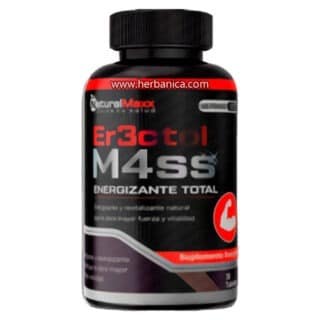Category
- Slimming
- Capsules
- Diabetes and Cholesterol
- Natural Extracts
- Filtering
- Gynecology
- Multivitaminicos
- Healthy Packs
- Female Sexual Potency
- Male Sexual Potency
- Restorative Regenerators
- Digestive system
- Sistema Hepatico
- Immune system
- Nervous system
- Bone and Skin System
- Respiratory system
- Urinary system
- Supplements
Sales
-
Forwomen
S/49.99S/38.99 -
Er3ctol M4ss Total Energizer
S/79.99S/59.99 -
Super Hydrolyzed Collagen
S/120.00S/95.00 -
Achiote Cats Forte
S/59.99S/44.99 -
Colágeno C with Biotin 360 tabletas
S/180.99S/168.99 -
Cola Flex Hydrolyzed Collagen
S/120.00S/95.00

How to have a good memory even when we are older
The wear of the hippocampus, a hormonal deficit or a reduction in blood supply can lead to a progressive deterioration of memory. The repair of this cognitive ability is not based only on performing mental exercises to improve it. Memory has a physiological basis as support that must also be taken care of.
Over the years, it is normal for memory to become weaker. Learning and remembering new information can take more time and effort. There are some strategies that allow its deterioration to be delayed and even improved, such as the person who begins to exercise (sport) at 40 feels better than a few years ago.
What strategies exist to have a fit memory? We present five main strategies that medicine endorses and that show that there is no reason to resign yourself to losing memories due to age.
Eliminate external problems
Memory deficits are closely related to certain medical causes that your own doctor can help you alleviate. Depression and anxiety are two great enemies, since the state of mind is vital for memories to remain well fixed in our minds. Mental states related to sadness and melancholy end up preventing short-term memory from working as it should.
Some medications, such as sleeping pills, as well as a lack of vitamins, hearing problems and even thyroid, kidney or liver problems can have an impact on a lower ability to record our experiences.
If you feel that there is a connection between any of these reasons and a decrease in your ability to remember, speak urgently with your doctor to treat the problems or modify the doses if you are under any type of treatment.
YOU CAN ALSO SEE: The benefits of Aguaymanto.
Constantly monitor blood pressure
Hypertension problems that have not been treated in time are intimately connected with the ability to store and process memories in our brain. Some dementias and mild cognitive impairments are, in fact, based on this disease.
High levels of blood pressure have a direct impact on blood flow. Therefore, it is advisable to avoid tobacco, immoderate alcohol consumption and rest every night between seven and nine hours.
This last factor is presented as particularly relevant since deep sleep plays a fundamental role in the consolidation of memories. The time we spend in bed, disconnected from the world, allows us to settle the important events that have happened throughout the day and make them pass into long-term memory.
Exercise continuously
Aerobic sports (running, cycling, swimming, rowing) in particular have been shown to clearly improve memory, according to a study published by the University of British Columbia. These activities have direct repercussions on the hippocampus, the area of the nervous system most compromised for verbal memory and learning, and may even increase its size.
Directly, aerobic exercise increases blood flow, reduces insulin resistance and stimulates the so-called trophic factors, a set of substances of a protein nature that, together with hormones and neurotransmitters, play a fundamental role in interneuronal communication.
Indirectly, exercise improves moods, reduces stress and improves sleep: three conditioning factors, which, as we have seen, are quite an obstacle to achieving a very good memory.
Follow a Mediterranean diet
The regimen that Italy, Spain and Greece are proud of increases longevity and results in fewer cases of Alzheimer's being recorded.
According to a study carried out by two Australian universities, the high doses of fruits, vegetables and fish present in this diet, combined with moderate intakes of red meat and sugars, provide empirical evidence that memory and attention are improved.
accept challenges
All the hobbies that may seem innocuous on the surface, such as playing cards, dominoes or completing hobbies, however, have very beneficial effects in terms of maintaining certain cognitive abilities past a certain age.
At any time in our lives it is good to go further and try to acquire new knowledge or even a second language. Whether from an intellectual or practical point of view, the further away the new competition is from what we are used to, the more we will put our memory (brain) to the test and the more we will exercise it.
Experts like Dr. Allen Sills, professor of neurological surgery at Vanderbilt Medical Center, recommend activities as outrageous as trying to use your left hand if you're right-handed or your right hand if you're left-handed: "When you use your non-dominant hand, you activate and connect different regions brain cells that stimulate new memories.
Written by admin
HERBANICA.COM offers you natural products of excellent quality; If you have any questions, suggestions or questions to ask us about the products, the website, the purchase methods, etc .; You can contact us by filling out the contact form.
Best Deals
Join without risk
Refund in 24 hours maximum.
100% sure
Safe shopping.
24x7 support
Online 24 hours.
Best Deals
Buy now.
Shipments
To the whole country.
What's new?



TOP products
-
Jenjibre X100 And Capsulas Naturalmaxx S/33.99
-
Hyr Herbal Maxx X100 and Capsulas Naturalmaxx S/33.99
-
Huanarpo Male X100 And Naturalmaxx Capsules S/33.99
-
Hercampure Maxx X100 and Capsulas Naturalmaxx S/33.99
-
Hepton Herbal X100 And Capsulas Naturalmaxx S/33.99
-
Graviola X100 And Capsulas Naturalmaxx S/29.99
-
Glucozhamine X100 and Capsulas Naturalmaxx S/38.99
-
Ginseng X100 And Capsulas Naturalmaxx S/38.99
















